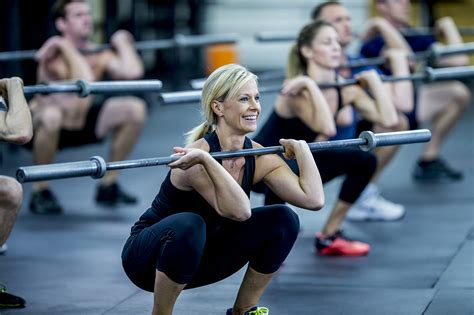
Why Pre-Hab Matters Before Menopause
At Embody Health and Performance, we are passionate about the power of “pre-hab”—proactive, preventative training for your body to reduce the likelihood of injury and long-term health concerns. When it comes to menopause, every woman will experience it. The question is, will you be prepared?
Menopause is a natural transition, but it brings significant changes to your body that can affect your muscles, tendons, and bones. Declining estrogen levels lead to a decrease in muscle mass, tendon elasticity, and bone density, increasing the risk of injury and conditions like osteoporosis. But here’s the good news: You can take control now and build resilience for the years ahead.
Strength Training: Your Best Ally
Building and maintaining muscle is essential before and during menopause. Strength training not only preserves muscle mass but also helps maintain bone density, reducing the risk of fractures. Additionally, stronger muscles provide better support for tendons and joints, lowering the likelihood of injuries.
Tendon Health: Prevention is Key
Tendons naturally become less elastic with age, making them more prone to injury. A well-rounded training program that includes progressive strength training, mobility work, and controlled loading can help keep tendons resilient. By focusing on pre-hab, we can minimize the chances of painful tendon issues down the road.
Understanding Gluteal Tendonitis in Menopause
Gluteal tendonitis (also called gluteal tendinopathy) is a common condition that affects the tendons of the gluteus medius and gluteus minimus muscles. These muscles play a crucial role in stabilizing the pelvis, aiding in hip abduction, and maintaining proper posture during movement. Women going through menopause may be particularly susceptible to this condition due to hormonal, physiological, and lifestyle changes.
The Connection Between Menopause and Gluteal Tendonitis
- Decline in Estrogen and Tendon Health: Estrogen is vital for maintaining the strength and elasticity of tendons. As estrogen levels drop during menopause, tendons become more prone to degeneration, weakening, and inflammation. A 2015 study in The Journal of Orthopaedic & Sports Physical Therapy found that estrogen deficiency reduces collagen synthesis in tendons, making them more susceptible to tendinopathy. Additionally, estrogen influences collagen production and tendon structure, affecting their mechanical properties and making postmenopausal women more vulnerable to tendinopathy.
- Sarcopenia and Muscle Weakness: Muscle mass and strength naturally decline with age, a process known as sarcopenia. Weakness in the gluteal muscles, especially the gluteus medius, can alter movement mechanics, leading to increased stress on the gluteal tendons. Research published in Clinical Biomechanics (2017) highlights how hip abductor weakness contributes to altered gait patterns and higher risks of tendinopathy.
- Postural Changes and Pelvic Alignment: Menopause is linked to shifts in pelvic and spinal alignment, often increasing anterior pelvic tilt. This biomechanical shift places additional stress on the gluteal tendons. Hormonal changes, muscle imbalances, and bone density loss contribute to these postural adaptations, increasing the likelihood of tendon issues.
- Reduced Bone Density and Increased Load on Tendons: As bone density decreases with menopause, force distribution across the body changes, sometimes overloading the muscles and tendons in the hip region. A study published in The Journal of Applied Physiology (2008) found that estrogen deficiency leads to alterations in collagen turnover, reducing tendon stiffness and structural integrity, which may contribute to a higher risk of tendinopathy in postmenopausal women.
- Increased Risk of Overuse and Activity Modification: Menopause-related shifts in energy levels and joint health may lead to changes in exercise habits. Reduced strength training and increased reliance on low-impact activities like walking or cycling can contribute to gluteal tendon irritation.
- Weight Gain and Increased Mechanical Stress: Many women experience weight gain during menopause, which places added stress on the musculoskeletal system, further increasing the risk of gluteal tendonitis. A study in Menopause International (2008) discussed how postmenopausal women experience increased tendon stiffness and reduced healing capacity, making tendons more vulnerable to injury.
Managing Gluteal Tendonitis During Menopause
If you’re experiencing hip pain or suspect gluteal tendonitis, there are effective ways to manage symptoms and reduce risk factors:
- Strengthening Exercises: Targeting the gluteus medius and minimus with exercises like clamshells, hip abductions, and bridges can enhance stability and relieve tendon strain. Our Physiocoaches, who are both Doctors of Physical Therapy and trained coaches, understand how to safely and effectively guide you through strength training to build resilience and prevent injury.
- Mobility Work: Improving hip and pelvic mobility can help restore proper movement mechanics and reduce excessive strain on the gluteal tendons.
- Physical Therapy: A movement specialist can help correct posture, improve gait mechanics, and provide strategies for tendon rehabilitation.
- Hormone Replacement Therapy (HRT): Some women may benefit from HRT to help maintain tendon integrity, though this should be discussed with a healthcare provider
- Weight Management: Maintaining a healthy weight can reduce unnecessary stress on the hips and glutes.
Join Us and Take Charge of Your Health
We know this transition can feel overwhelming, but you are not alone. Our goal at Embody Health and Performance is to support and empower women with the knowledge and tools they need to thrive. If you or a woman you love wants to learn more, we invite you to join us for our “Navigating Peri-Menopause” Workshop on October 23rd. Together, we’ll discuss the essential steps to building a strong, resilient body for the years ahead.
Menopause isn’t something to fear—it’s something to prepare for. And with the right approach, you can step into this next chapter feeling strong, capable, and in control of your health. Let’s build resilience together—because pre-hab is always better than re-hab.
Resources